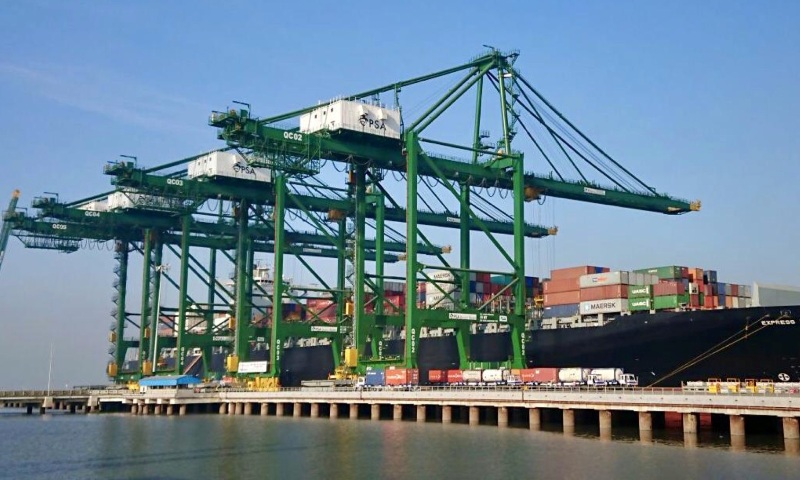PSA Mumbai, one of India’s leading container terminals, has achieved a major operational milestone by successfully handling 11 million TEUs (twenty-foot equivalent units) since commencing operations in early 2018. The achievement marks a significant step in the terminal’s journey toward strengthening its role as a vital logistics hub in India’s supply chain and global trade network.
Strategically located within the Jawaharlal Nehru Port (JNPT) complex, PSA Mumbai—also known as Bharat Mumbai Container Terminals (BMCT)—has rapidly emerged as a preferred gateway for exporters and importers. The facility’s state-of-the-art infrastructure, advanced automation systems, and deep-water berths have enabled it to handle some of the largest container vessels calling at Indian ports.
Since its inception, PSA Mumbai has been driven by a vision to combine efficiency, technology, and customer-centric operations. The terminal’s consistent performance is attributed to its cutting-edge technology platforms, streamlined operations, and collaborative engagement with customers, partners, and employees.
A spokesperson from PSA Mumbai said, “Crossing the 11 million TEU mark is a proud moment for us. It reflects our team’s relentless dedication, our customers’ trust, and our partners’ continuous support. We remain committed to enhancing supply chain efficiency and contributing to India’s position as a global trade powerhouse.”
The terminal’s milestone comes at a time when India’s maritime and logistics sectors are witnessing strong growth, driven by increasing trade volumes, port infrastructure modernization, and government initiatives like Sagarmala. As PSA Mumbai continues to scale operations, it aims to play an even greater role in driving India’s maritime competitiveness and enabling sustainable global trade.
With this achievement, PSA Mumbai not only reinforces its position as a leading container terminal in the region but also underscores its long-term commitment to advancing the nation’s logistics capabilities and supporting the evolving needs of global commerce.

